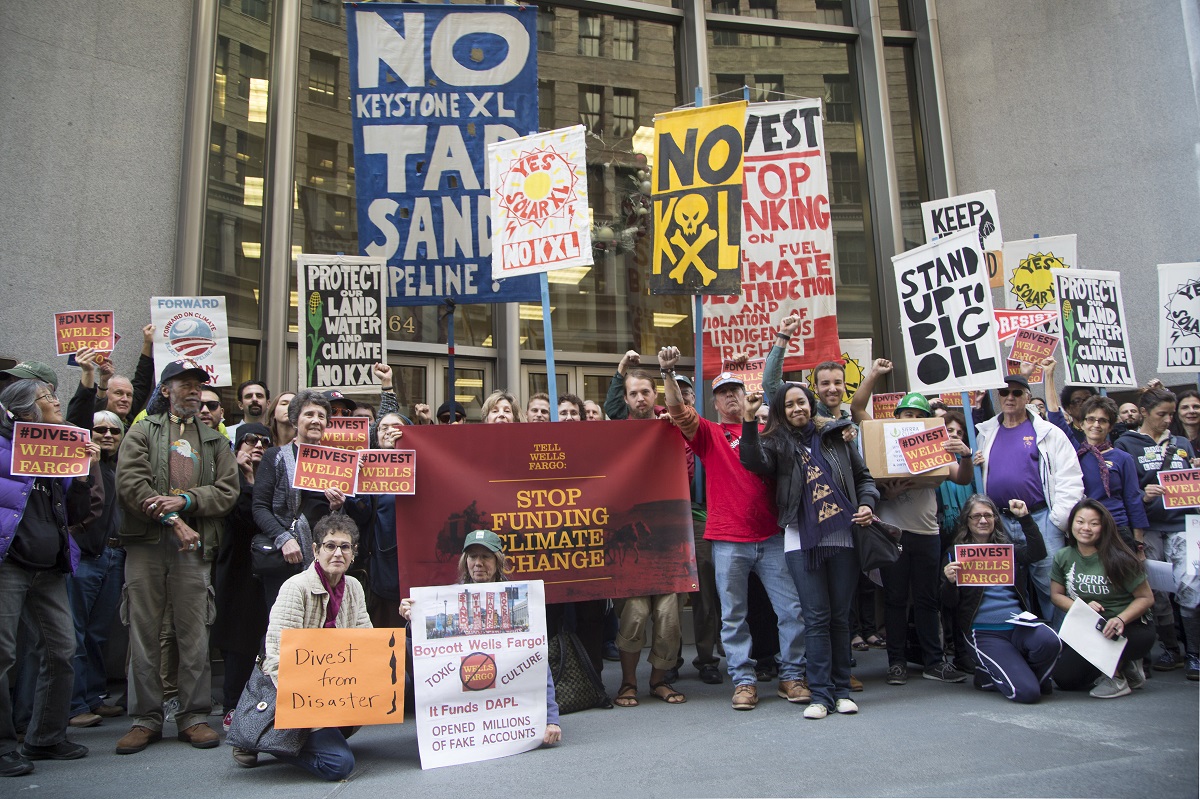When TransCanada proposed the Keystone XL pipeline in 2008, they couldn’t have expected that a decade later they’d still be trying -- and failing -- to get their tar sands pipeline built.
But over the last ten years, an unprecedented movement of farmers, ranchers, Tribes, and activists along the proposed pipeline route and around the country has come together to push back against this proposed project, which would threaten our waterways and our climate by transporting the dirtiest fuel source on the planet from Canada to the Gulf Coast for export.
One of the Trump administration's first acts in office was to approve the controversial pipeline, but the Sierra Club and our partners have been fighting this project in the courts ever since, and the pipeline’s prospects have never looked so bleak.
Federal Court Deals Major Setbacks to Keystone XL
As you might remember, back in March 2017 we sued the Trump administration along with a coalition of other environmental and landowner groups because the State Department cut so many corners when it rushed to approve Keystone XL. The agency approved the permit for the pipeline based on an environmental impact statement (EIS) from 2014 that, in addition to being completely outdated, had a number of serious flaws and inadequacies that needed to be corrected. For example, the EIS downplayed the climate change impacts of Keystone XL and failed to evaluate the risks of oil spills.
This fall, we finally got a ruling in that case, and the court agreed with us: The Trump administration failed to adequately study the environmental impacts of the proposed pipeline. The judge vacated the State Department’s approval, blocked any construction on the project, and sent the administration back to the drawing board on their environmental impact statement, which normally takes over a year to complete. TransCanada has since attempted to move forward with “pre-construction” activities in the while the new environmental review goes forward, arguing that if they couldn’t do things like building worker camps, transporting and stockpiling pipe, and mowing along the route, they’d miss the 2019 construction season and suffer at least $949 million in financial injuries. But the judge rejected their request, setting them back even further.
We’re also challenging Keystone XLat the state level, contesting the Nebraska Public Service Commission’s approval of the pipeline route. We’re expecting a ruling from the Nebraska Supreme Court soon, and if we’re successful there, that could delay the project even more.
Market Forces Working Against TransCanada
Meanwhile, while we’ve been holding off construction of this dirty tar sands pipeline, the global market has shifted. Opposition and delays to Keystone XL, as well as other tar sands pipelines like Line 3 and Trans Mountain, have thrown the Canadian tar sands industry for a loop. The price of Canadian crude is down to about $20, well below the global benchmark, and the Alberta government recently announced a plan to cut tar sands production almost 10 percent over the next year.
Even TransCanada has recognized that they’re facing an uphill battle. The company still hasn’t announced a “final investment decision” on the project, saying they’re waiting to see how the legal and regulatory processes go before deciding whether or not to commit to going forward with the pipeline.
Time for Banks to Get the Message
All these setbacks for Keystone XL come as major banks, including Wells Fargo, have a pair of credit facilities totaling $1.5 billion out to TransCanada that are set to expire today. The banks can either renew these facilities or reconsider financial support for the beleaguered pipeline company.
Sierra Club members and supporters from across the country have sent more than 72,000 messages to Wells Fargo about the bank’s financing for TransCanada and Keystone XL. Throughout this week, activists rallied in Seattle, San Francisco, New York, and Washington, D.C., to call on Wells Fargo, JPMorgan Chase, and other banks to drop their support for TransCanada.
Array
Keystone XL has faced huge public opposition for the last decade, and our legal team is making sure that opposition isn’t going anywhere. Now, more than ever, it’s clear that TransCanada’s dirty pipeline plans will never be a reality. It’s time for Wells Fargo and other banks to get that message and invest their customers’ money into a clean energy future, not more dangerous pipelines.
